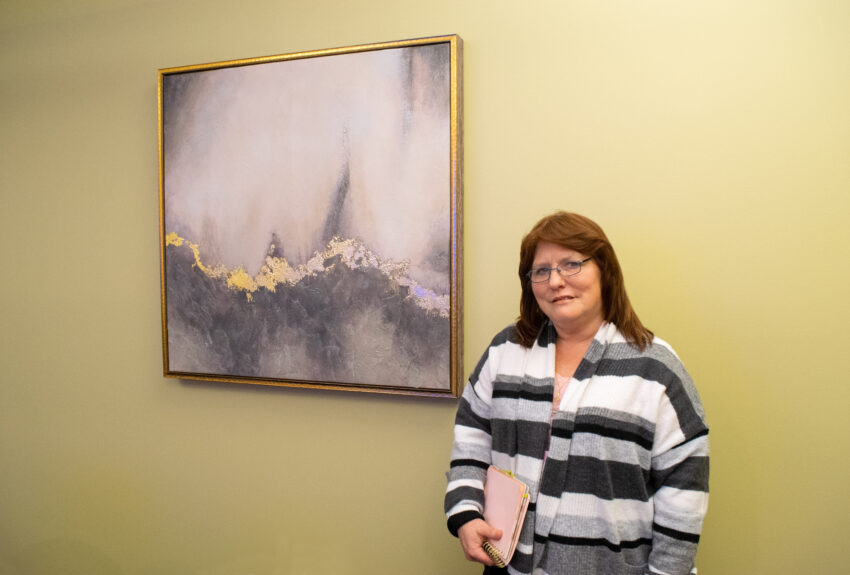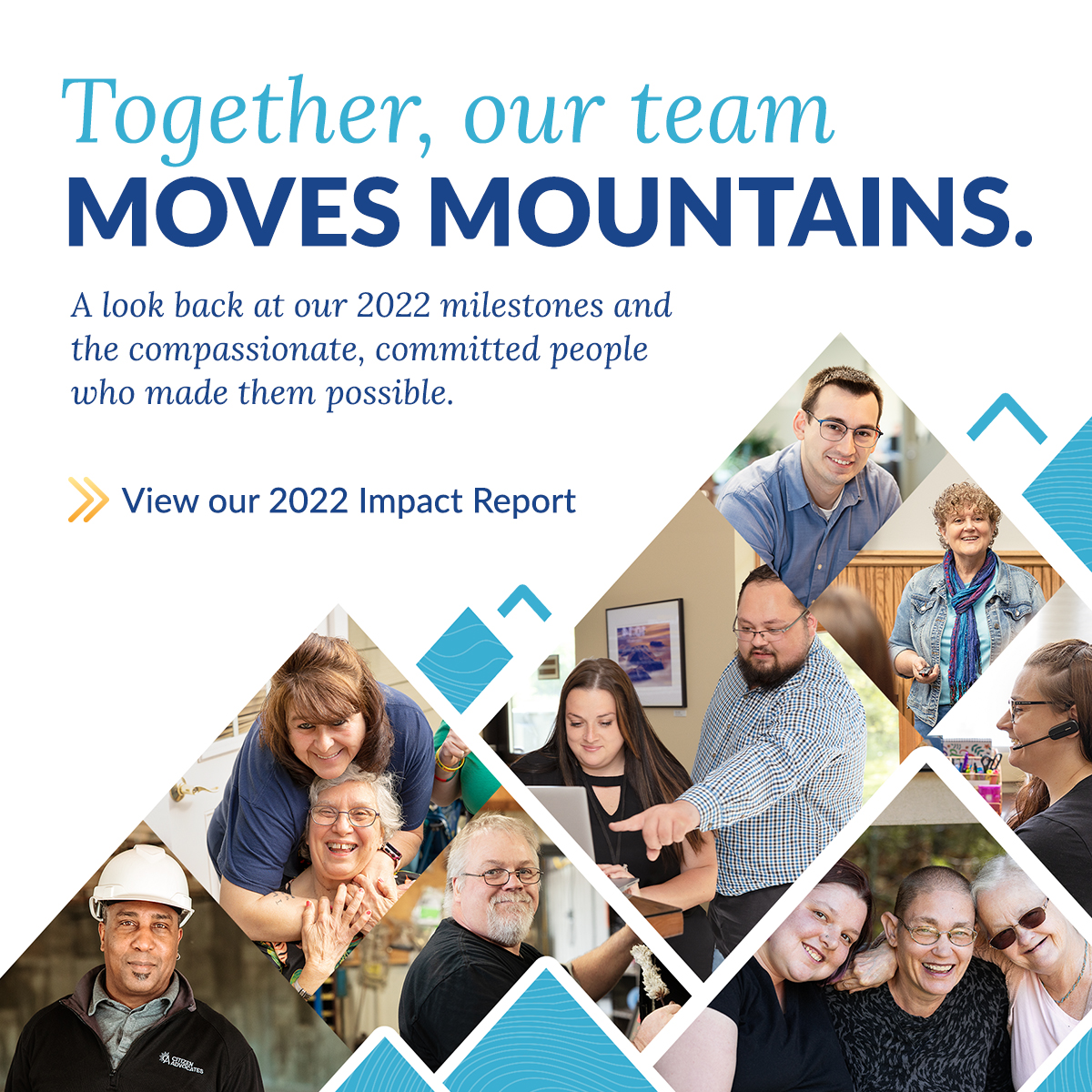Welcome to One Team, a series of Q&As shining a light on outstanding members of Citizen Advocates’ 800-strong workforce that stretches from Lake Champlain to Lake Ontario.
When New Hampshire native Coralee Husband moved to Northern New York, she was amazed by the 24/7/365 mental health and addiction treatment services offered at Citizen Advocates’ Behavioral Health Urgent Care Centers (BHUCs) in Malone, Ogdensburg and Watertown. “I’d never seen anything like this before. It’s very special what we have here.” Now, 15 months after starting as a peer specialist, she’s the Psychosocial Rehabilitation Specialist (PRS) Team Lead at the Malone Behavioral Health Urgent Care Center. Below is her story in her own words.
What is the difference between a peer specialist and a Psychosocial Rehabilitation Specialist?
Husband: A peer is somebody who uses their lived experience to coach clients through mental health or addiction issues that are seen as obstacles. A PRS helps a client build skills to get them back on track and set them up for success in the future. We do many other things, but those are the broad strokes.
How did you start working in the behavioral health field?
Husband: I’m in long-term recovery myself – 11 years. After I realized I had a problem and got treatment, I wanted to give back. So, I became a recovery coach through Turning Point Recovery Center of Springfield, Vermont. I held that position in an emergency department in New Hampshire until I moved to New York.
My story is what brought me to where I am today. People come in here struggling with the same addiction and I tell them “Look, I really do get it. I understand what you’re going through.”
Recovery is not always easy, but you have to start somewhere – one day at a time, little by little. Even if it’s minute by minute, we’ll do baby steps. At the BHUC, we’re often at the very beginning of someone’s recovery. Those first few days are going to be the hardest. But if they can get through a few days, then a few more days, before they know it… it’s been years.
Whatever it takes to get someone through a crisis, our team will work together to make it happen. We’re here to help clients reach their goals of a successful discharge – 24/7.
When someone comes into the Behavioral Health Urgent Care in crisis what is the role of a PRS?
Husband: First the client will see a therapist or a nurse, depending on whether they’re experiencing a mental health or addiction crisis. Then a member of my team will take the client to the appropriate part of the building for their needs, either crisis residence or withdrawal management where clients come for the first 23 hours. We offer them some food, give them a tour, get them acclimated, then go through the admission process. If they’re experiencing withdrawal, just getting them comfortable in a chair with something to drink is what’s most important.
Once they’re acclimated to the facility, we begin discussing what goals the client would like to meet and how we can assist them in meeting those goals.
Throughout the day, we run groups every two hours and check in with clients in between to see how they’re doing. Whenever a client needs to talk to somebody, a PRS takes them to a quiet area and helps them work through their struggles, talks through their goals for a stable discharge.
Then, after a client is discharged, peers and PRS check in to help with their upcoming appointments and connect them with services in the community like the Crimson Phoenix club in Malone or the Mountain Crest club in Saranac Lake. We also have an outpatient group at the BHUC once a week for any client who is interested.
As the team lead what are your responsibilities beyond being a PRS?
Husband: Every morning starts with a full team meeting of everyone who’s on staff for the day. We discuss each client’s case, right down the line. After that meeting, I take the paraprofessional team back to my office and we plan out our day to ensure we’re giving our clients the best possible care. That means rotating assignments to keep staff members fresh.
It’s important to have a happy team. My job is to help them develop the necessary skills to get the best results out of our clients. They can’t do that if they’re struggling, so I also make sure they take time for themselves. Yes, I could use people 24 hours a day – we could always use more staff – but I have to be mindful of my team’s mental health, too.
For me, it’s so important for people to enjoy what they do. If you like your job, you’re going to have a much happier life. I get up and look forward to going to work every day. If I have three days off, I’m usually stopping in at some point, because I miss my job, I miss the facility. I like being here.
What do you do for fun when you are taking time off?
Husband: I picked up four-wheeling when I moved to New York. Never have I seen trails like what we have here. So, now I’m looking into buying a snowmobile, which I’ve never done. I love the outdoors. I would never leave New York now.
If you’re interested in learning more about a career at Citizen Advocates, visit citizenadvocates.net/careers.


 Previous Post
Previous Post


